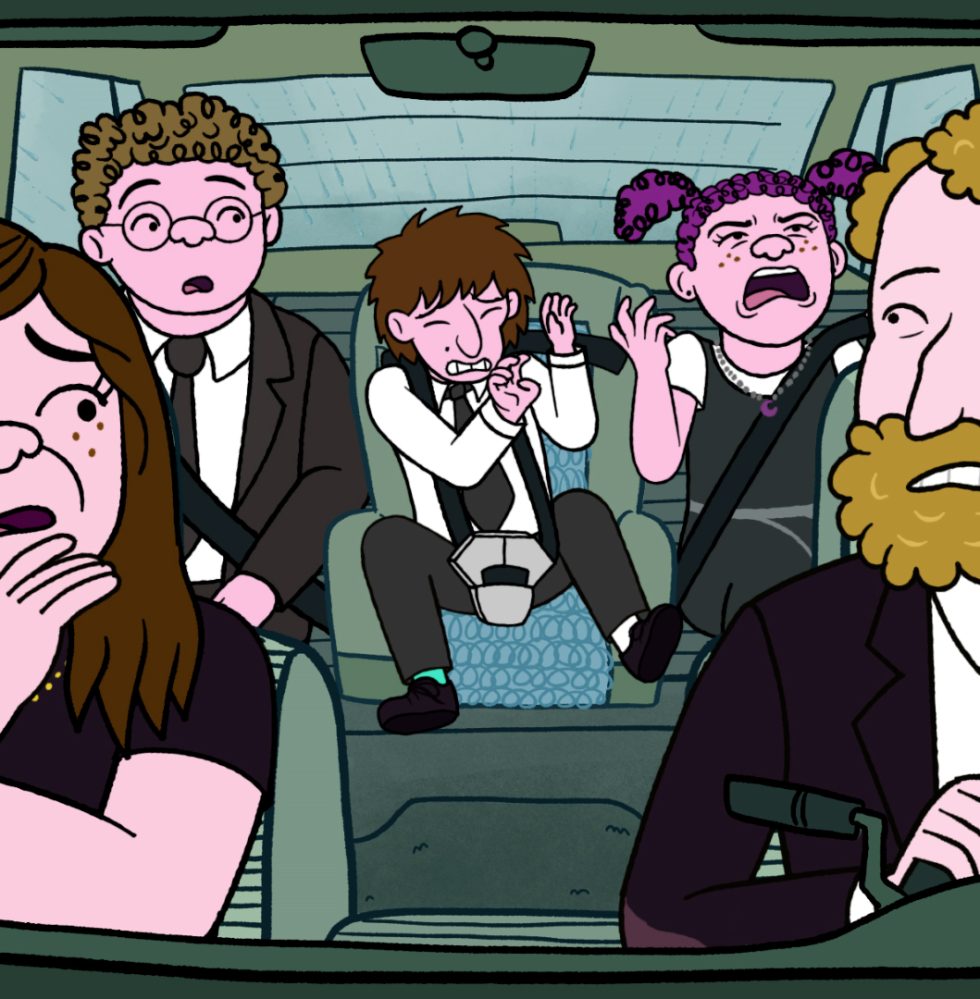
BoJack Horseman creator Raphael Bob-Waksberg wishes the networks and studios would be “a little more courageous” on adult animation.
Noting today’s “industry contraction,” Bob-Waksberg said decisions by the gatekeepers are “being made out of fear” in the current landscape, which he “empathizes” with.
“I feel like there are a lot of artists and writers who want to do exciting things and kind of push the edges of what adult animation can be,” he told Deadline at Annecy. “I think it’s hard. You’d always rather take a safe bet than a riskier bet, but I feel there is more room in adult animation to be telling more stories than we currently are.”
Bob-Waksberg, whose 10-year-old Netflix hit BoJack Horseman redefined adult animation, noted that the contraction has hit genres across the board, leading to risk-aversion everywhere.
He was speaking a day after Adventure Time showrunner Adam Muto said “idiosyncratic voices” are getting lost, as Muto urged commissioners to “greenlight stuff.”
Bob-Waksberg said risk-aversion can be “self perpetuating” and impact the way in which shows are pitched.
“BoJack honestly suffered a little bit from my expectation of what adult animation should be,” he added. “It became a much better show when I started writing what I wanted to write. But I also wonder if maybe I had to sell the more familiar show to the network and audiences in order to be allowed to do some of the weirder stuff.”
Bob-Waksberg was in Annecy championing his new Netflix adult animation Long Story Short, which he said had been a “much smoother process” to create than BoJack, as he joked that comparing the two is like comparing the first Trump presidency with the second.
Starring Lisa Edelstein Ben Feldman and Abbi Jacobson, Long Story Short follows the Schwooper siblings from childhood to adulthood and back again, chronicling their triumphs, disappointments, joys, and compromises.
The show is not entirely self-autobiographical – “This isn’t my Long Day’s Journey Into Night,” Bob-Waksberg said – but represents “the rhythm of my family.”
As with Bob-Waksberg’s real family, all the main characters are Jewish, and the creator said he wanted “to feel specific about this experience” in a similar vein to how King of the Hill represents the Texan experience.
“I wanted to have these characters feel full and real and not an afterthought,” said Bob-Waksberg. “I wanted to fill out some of those [Jewish] tropes a little bit, not necessarily shy away from them, and I wanted to present a real family, a real cartoon family, a real family with jokes.”
The show deals with “small ‘t’ trauma,” he noted, “the ways in which we are not ruined by our families but how our experiences still affect us and resonate with us.”
“When we did BoJack we did a little bit about family but there are a lot of only children and some of them have ‘Dickensianly cartoonish’ bad parents,” he added. “Some people have parents that are ‘bad bad’ but most of us don’t, most of us have parents that are somewhere between the two poles of the best parents ever and the worst parents ever, and yet almost all of us have trauma and issues and stuff that we’re still dealing with.”
Long Story Short is rare in its use of time-lapse.
Bob-Waksberg said he was conscious of being specific about time and showing the way in which his characters change over time.
His comments came a day after The Simpsons showrunner Matt Selman said the biggest criticism the show gets from fans is from people who criticize how the characters never age.
With Long Story Short, Bob-Waksberg is keen to work on future series but said audiences should get to the end of the first season having “watched the characters grow up and feeling like you’ve seen them at all different phases of their life.”
“You don’t get to 200 episodes of a show very often anymore so I thought how I could short circuit that a little bit,” he added.
Bob-Waksberg was speaking to Deadline at the Annecy International Animation Film Festival. Long Story Short launches August 22.



